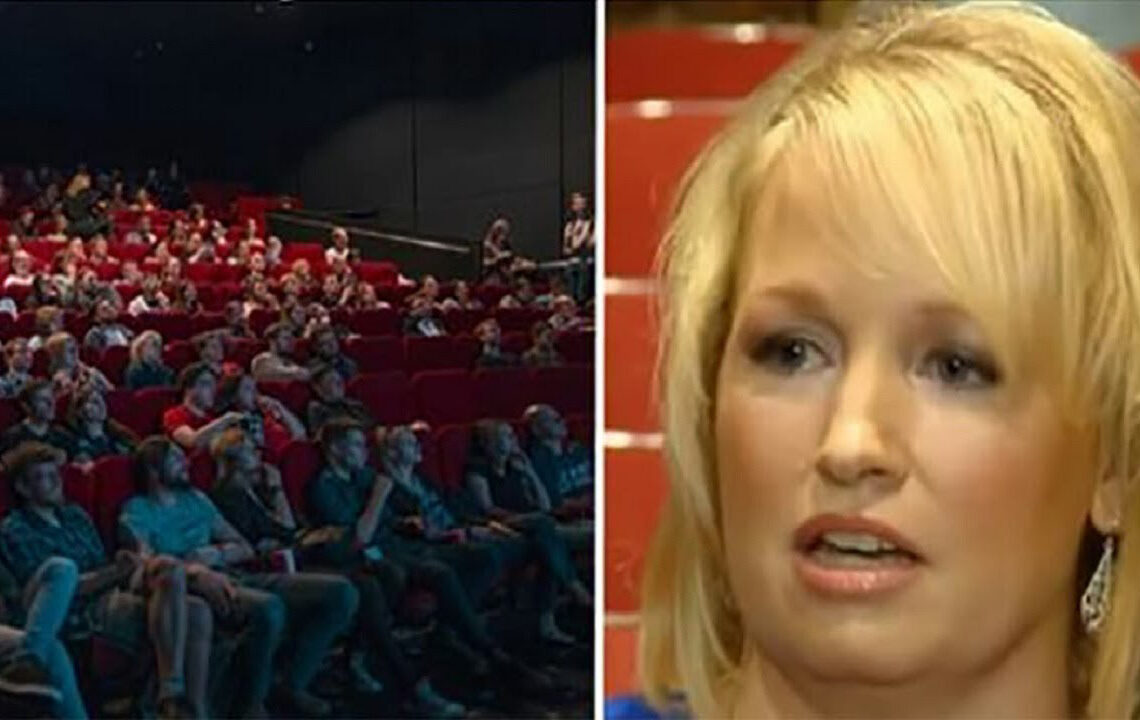
In a small town, a woman faced the daunting challenge of managing her family’s finances after her husband lost his job. Despite the impending budget constraints, she wanted to create a memorable experience for her daughter before their lifestyle changed. This heartfelt desire led her to take her 12-year-old daughter to a much-anticipated screening of a beloved animated film featuring a classic princess story.
As the credits rolled and the lights dimmed, the mother hoped for an enjoyable evening filled with laughter and excitement. However, the atmosphere quickly shifted as she noticed a group of teenagers behind them who were being disruptive. The girls were talking loudly and kicking the back of her seat, drawing her attention away from the film. After several attempts to politely request that they quiet down, the mother realized that her requests were falling on deaf ears.
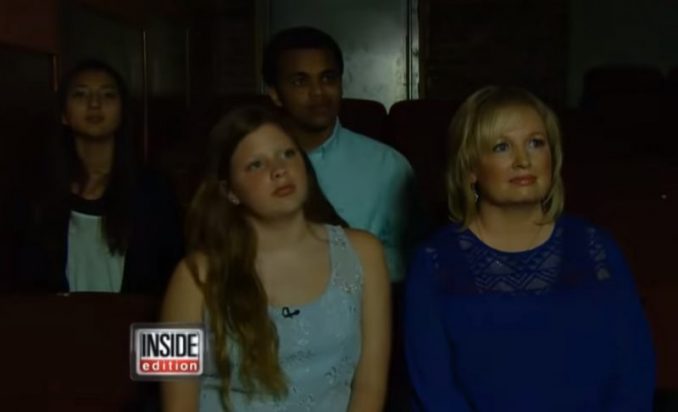
Frustrated yet determined to salvage their movie night, the mother felt compelled to address the situation more directly. She turned around and expressed her feelings about the disturbance, hoping to make the teenagers aware of their behavior and its impact on her daughter’s enjoyment. Unfortunately, the girls remained dismissive, which only added to the mother’s disappointment. Little did she know, the story was just beginning.
After the movie ended, the girls’ older brother, who had accompanied them, returned home and recounted the incident to their mother, Kyesha. Upon hearing about her daughters’ behavior, Kyesha felt an overwhelming need to take responsibility for their actions. She recognized that what her daughters had done was not just annoying but disrespectful, and she wanted to ensure they understood the seriousness of their behavior.
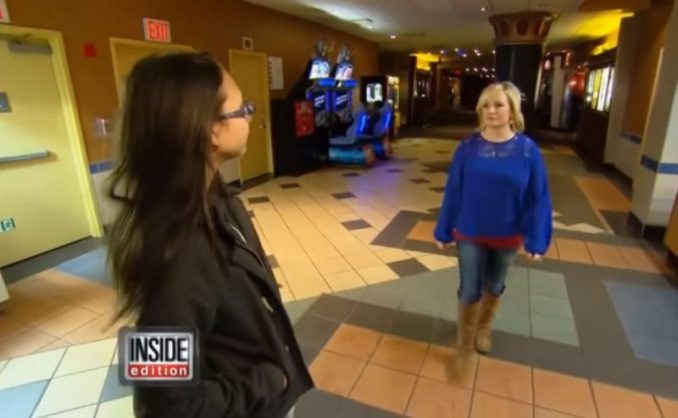
Using social media as her tool, Kyesha posted a heartfelt message on Facebook, expressing her sincere apologies to the mother and daughter affected by her children. She promised that her daughters would face appropriate consequences for their actions and offered to pay for the next outing of the mother and daughter as a gesture of goodwill. Kyesha’s post quickly gained traction and was shared widely, allowing her to connect with the woman she had never met.
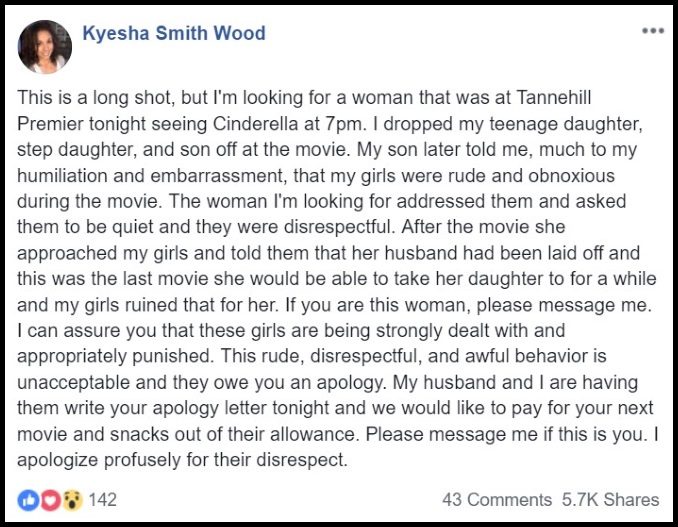
The message eventually reached the mother, who was touched by the unexpected response. Kyesha’s daughters, realizing the extent of their actions, felt a deep sense of remorse and embarrassment. Kyesha emphasized to them the importance of accountability, reinforcing that such behavior would not be tolerated in their home.
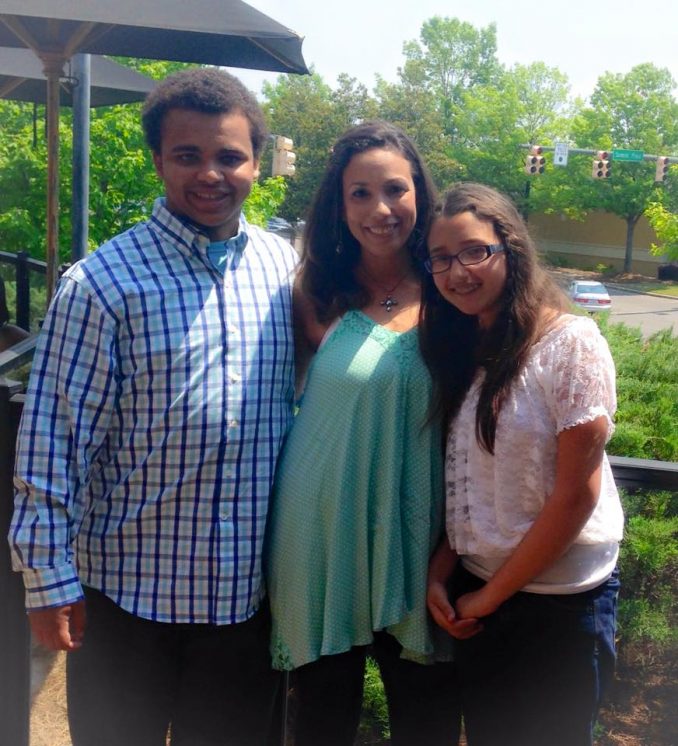
The story took a heartwarming turn as the two families began to connect. The initial incident, which could have ended in conflict, instead blossomed into a friendship. The two mothers shared meals and stories, fostering a bond over their commitment to parenting. They both believed in the value of addressing wrongdoing and guiding children toward better behavior, even when they were not the ones at fault.
Kyesha expressed her admiration for the mother, recognizing her grace and kindness in the face of her daughters’ disrespectful behavior. She acknowledged that it took a remarkable person to step in when others might have simply turned a blind eye. The connection formed between the two families became a beautiful reminder of the power of empathy, understanding, and community.
In a world where it is easy to overlook the actions of others, this story serves as a reminder that kindness can emerge from conflict. By addressing the behavior directly, the mother set a positive example for her daughter while also inspiring the teenagers to reflect on their actions. The newfound friendship between the two families illustrates how challenges can lead to unexpected connections, fostering a sense of unity and understanding that can benefit everyone involved. Through open communication and a willingness to engage, they created an environment where respect and accountability flourish, proving that even the most disruptive moments can yield positive outcomes.